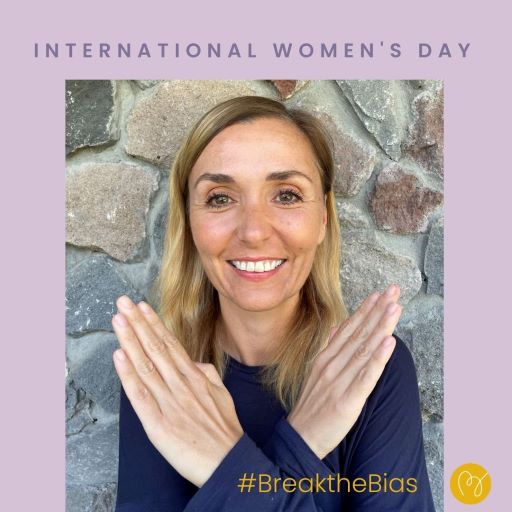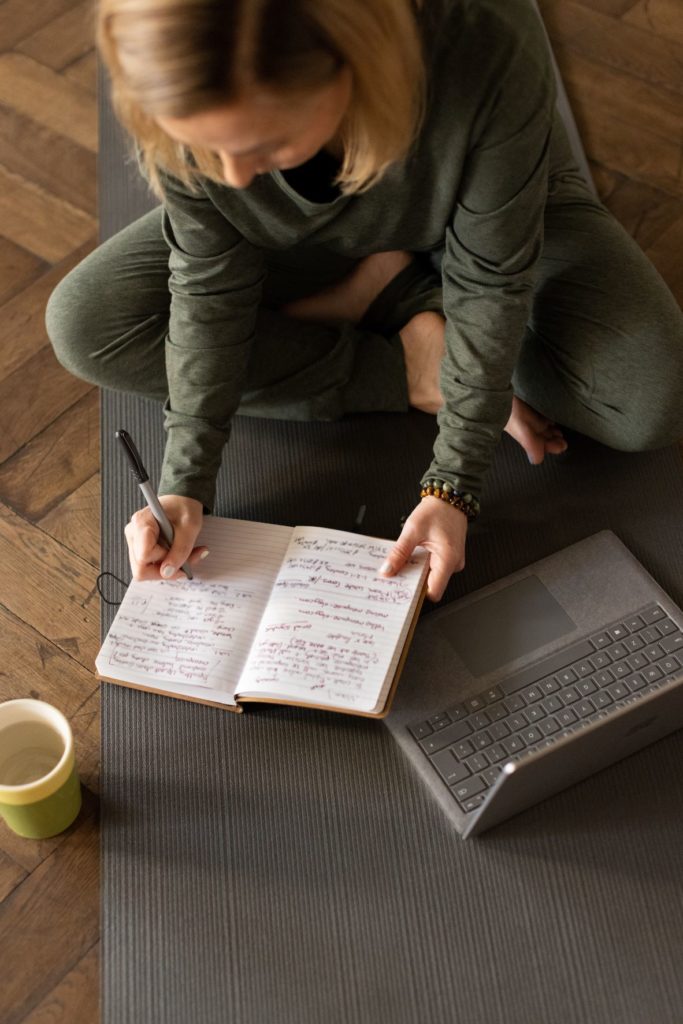How to change the dialogue about menopause – our own and others
By the time you read this, International Women’s Day will have passed us by, but I wanted to share with you why this year’s theme, #breakthebias, resonated with me. As a diverse and beautiful community of women, many of us will probably have faced biases in some form throughout our lives. I know I have. And I know I am not alone. And many of those biases are external and come from others, but I am also going to be honest, those biases are in me about myself as well. The stories we tell ourselves can be just as powerful in holding us back.

But just because we have these stories (or negative self-talk) rumbling around in our minds about menopause, doesn’t mean we have to accept them as real!
Menopause is a major part of womanhood. Some women embrace it; some struggle with it. It’s also a transition that is still under discussed – by the women it affects and by the people around us. This means most of us walk into this stage of our lives not fully aware or prepared. And speaking from personal experience, once I was aware of what was happening to my hormones, body and emotions I felt shame and embarrassment for a number of years. I didn’t talk about it with anyone around me. Not even my closest friends or my partner. And that is very unusual for me. My work over the years as a mental health specialist has always given me the opportunity and confidence to learn, think and discuss some of the most taboo issues out there. But it took me about two years before I started to talk to close girlfriends about my perimenopause symptoms, and even then I didn’t share everything I was experiencing. I didn’t share the things going on in my body and mind that I felt most embarrassed about.
But we need to be able to talk about it all – the hot flushes, the sleep disturbances, gaining weight, reduced libido, vaginal dryness / itchiness, discomfort during sex, low mood or anxiety as well as problems with concentration. Not being able to talk about this massive stage in my life impacted my mental health and wellbeing for the first few years of perimenopause without a doubt.
Half of the world’s population have or will experience a menopause journey and yet there remains a strong taboo surrounding it. And ageism and sexism play a big part in this. The culture of shame around this normal life stage means that we don’t get the help we need or feel able to talk about our experiences. Many of us experience symptoms which impact the quality of our life, and symptoms will vary in severity and duration, lasting up to 12 years for some of us.
It’s important that all women, whatever our age, are fully informed about menopause, it’s stages, it’s symptoms, the support available and are empowered to approach it positively.
Opening up conversations about menopause is a great way to learn more and identify some of the tangible support and options available to you, but also to be part of creating a safe and positive space for all of us to not feel shame, embarrassment or fear about this important stage in our lives.
So how do we start to change the dialogue around menopause – for us and others? For me finding and being part of an informed community helped me feel more supported and less fearful or ashamed. Shared knowledge and experiences can help with overcoming challenges. Also, talking through issues can sometimes help lighten burdens, dissipate worries. I certainly feel ‘connected’ to the communities of women around me who I now share and learn with, including you, the Menopause-ology community. Being able to share helped me take time to look inwards and become aware of my own internal bias against myself and menopause.
Another way I started to understand and reduce my internal biases around my menopause journey was through journaling. Journaling helped me to better capture and understand what my negative self-talk was day-to-day. And with that awareness, came a way for me to control and tackle my own bias. I looked at what were my self-limiting beliefs that were stopping me from living my life on my own terms.

But there is still more to be done to continue to #breakthebias around menopause. Sharing conversations and experiences with the people around us is a great place to start. That’s how we can all play our part in breaking the bias associated with menopause.
“Menopause Power is going to require a massive cultural and medical shift. The silence around the menopause needs to become a cacophony and, one day, a symphony.” Kate Muir, Journalist and TV Producer.
And so this year I am committed to continuing to tackle my own internal biases, and to hold safe spaces for our Menopause-ology community to share experiences, discuss ideas and learn from each other.
What are some of your self-biases that you’re committed to tackling this year?